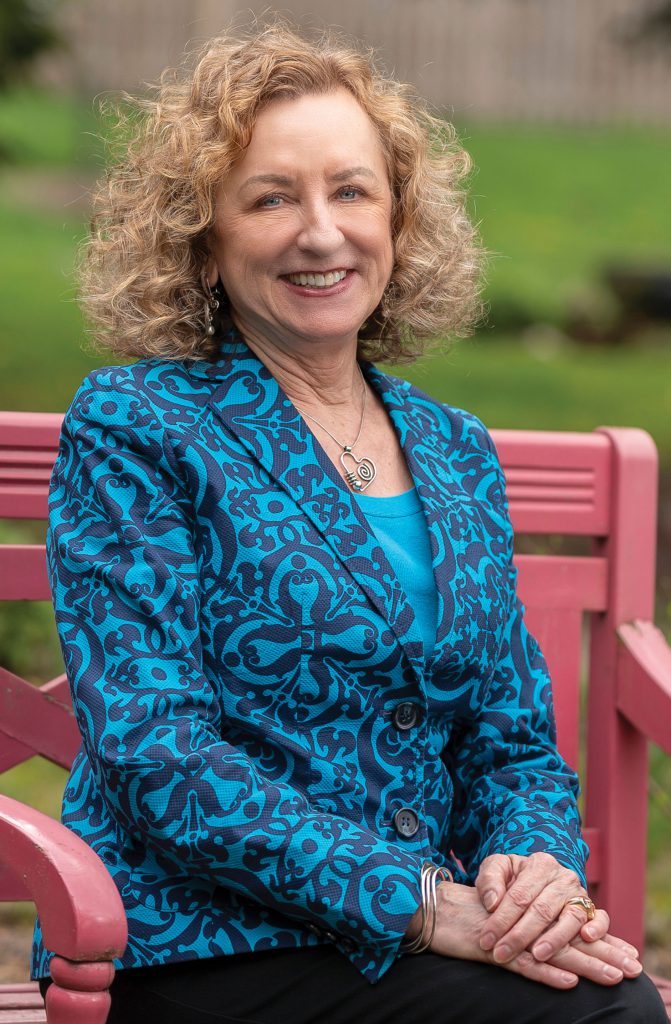By Robert Rubinson

I joined the law faculty at The University of Baltimore in the summer of 1997 to teach in the Civil Advocacy Clinic. At the time, the clinical law offices were at 40 West Chase Street, which is where Maryland Avenue turns into Cathedral Street while, at the same time, converging with Chase Street. The result is a tangle of roads with an island in the center.
On my first day of work, I stood on that island, utterly confused about where I should go. The confusion was not only physical: it reflected my fear of starting a new job in a new city, wondering which way I should turn. I must have been quite a sight, alone, befuddled and anxious.
And then a car slowed down. It was Barbara Babb. With warmth and good humor, she pointed me in the right direction. We have laughed about the absurdity of the moment ever since, but I quickly found out that it reflected the role Barbara would play for me at Baltimore Law. Her appearance was happenstance, but it was also a moment when Barbara was my guide when my footing was unsure. She has played that role many times since.
I appreciate what Barbara has given to me as a friend and colleague. Far more importantly, though, Barbara has given extraordinary things to countless students, colleagues and families across the country. While she has been a wonderful teacher of family law for decades and a trouper in the unheralded, yet important, work that goes on behind the scenes at the law school, she has done much, much more. I’ll describe two of her achievements.
First, some 30 years ago, Barbara played a crucial role in reimagining the law school’s Clinical Law Program. Much has happened since — the program has grown from four clinics when I arrived to 11 now, and counting — but Barbara helped to build the foundation upon which the clinical program rests today. And what a foundation it is. The program is renowned across the country and remains a model to which other law schools aspire.
And then she did some more reimagining. The result was the Sayra and Neil Meyerhoff Center for Families, Children and the Courts (CFCC). At its founding and in the 20 years since, Barbara built CFCC upon a sturdy and innovative intellectual foundation called therapeutic jurisprudence. Therapeutic jurisprudence examines legal rules as an element of larger social phenomena, with good or bad consequences for individuals. At its heart, it focuses on the well-being of people who come in contact with an, at best, indifferent judicial system which, while “resolving” a conflict, often leaves families worse off than when they began.
It is not in Barbara’s makeup, though, to rest on theory. She is a doer, and through her leadership, CFCC has done an awful lot. She has spearheaded the national movement to develop “problem-solving courts” built upon the idea that the “problems” families face extend far beyond legal ones. She has consulted with judicial systems nationwide to guide (there’s that word again) them in developing an integrated system that reflects a more humane, positive view of families in need. She has mentored and educated students through the CFCC Student Fellows Program, and I can personally attest to the profound impact this program has had on future lawyers — lawyers who will take her ideas into their own practices and into the world at large.
Barbara has transformed lives. She has set in motion efforts to create a system designed to help families at vulnerable, if not catastrophic, moments in their lives. She has given children the chance to live better, more fulfilling lives. Barbara’s accomplishments will no doubt redound to the benefit not only of those children, but to those children’s children. It is not hyperbole to say that the work Barbara has done will last through generations.
I am grateful for the guidance Barbara has shown to me as a colleague and as a friend. If only I could express, in a few words, the gratitude of generations of Baltimore Law students, parents and children whose lives, through her creativity, commitment and sheer tenacity, she has enhanced. What a legacy!
Robert Rubinson is a professor and director of the Mediation Clinic for Families at Baltimore Law.
